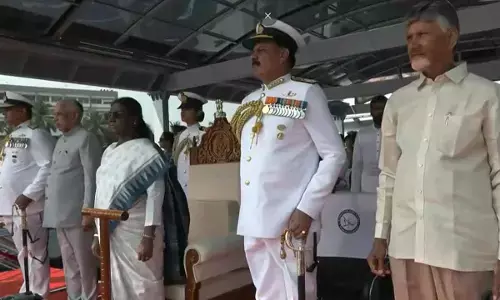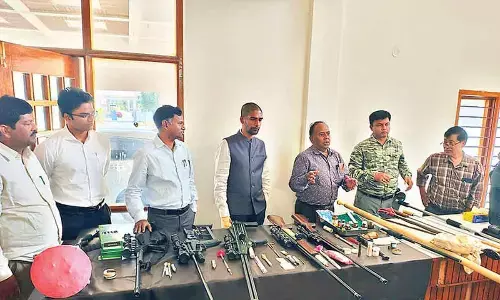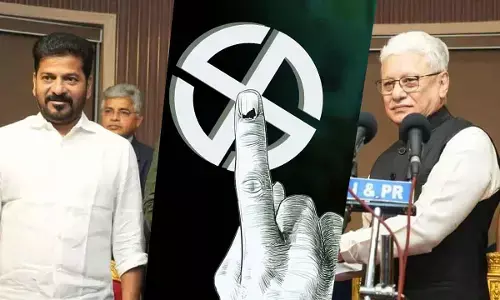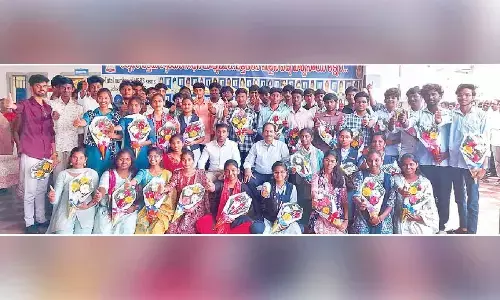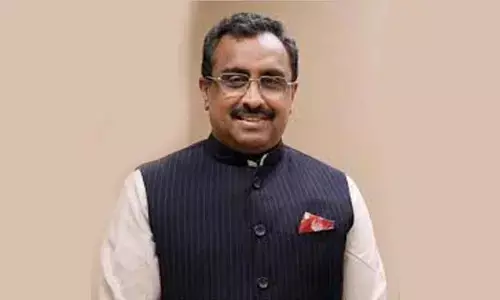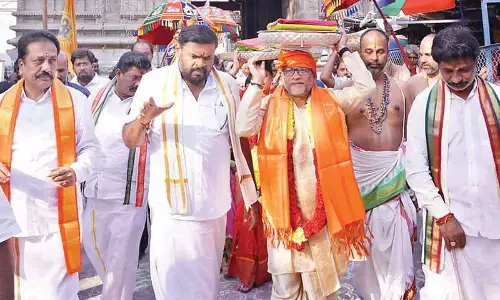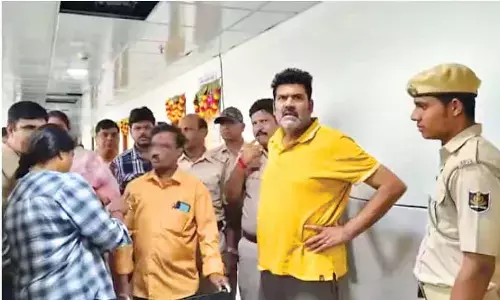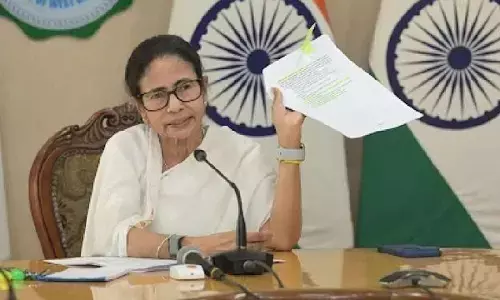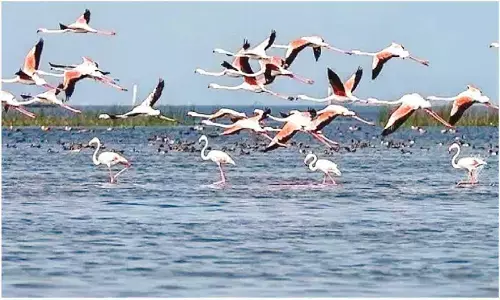Let the tribe of whistleblowers increase!

Representational image
Azadi Ka Amrit Mahotsav (AKAM), an initiative of the Government of India to celebrate and commemorate 75 years of independence and the glorious history of its people, culture and achievements, has five themes- Freedom Struggle, Ideas @75, Resolve @75, Action @75 and Achievements @75. Out of the five, Resolve @75, titled, "Reinforcing commitments to specific goals and targets", is very important from a citizen's perspective.
Azadi Ka Amrit Mahotsav (AKAM), an initiative of the Government of India to celebrate and commemorate 75 years of independence and the glorious history of its people, culture and achievements, has five themes- Freedom Struggle, Ideas @75, Resolve @75, Action @75 and Achievements @75. Out of the five, Resolve @75, titled, "Reinforcing commitments to specific goals and targets", is very important from a citizen's perspective.
This particular theme focuses on our collective resolve and determination to shape the destiny of our motherland. "The journey to 2047 requires each one of us to rise up and play our part as individuals, groups, civil society, institutions of governance etc," it maintains adding that "only through our collective resolve, well laid out action plans and determined efforts will ideas translate into actions."
As part of the official journey of AKAM, which commenced on March 12, 2021 and to continue till August 15, 2023, many programmes like Constitution Day, Good Governance Week were celebrated with patriotic fervour but there is no specific programme to encourage those who are willing to sacrifice their careers, mental peace and even life for the sake of public money and clean governance. Such a tribe is called whistle-blowers.
Contemporary Indian political, social, business, and legal scenarios underline the need for a maximum number of whistle-blowers to strengthen democracy. Also, there is an urgent need for building a culture of whistle-blowing to protect public-purpose institutions as part of the AKAM.
World Whistleblowers Day was celebrated on June 23 to hail the supreme efforts and sacrifices of the brave hearts who strived for the common good and corruption-free society and the USA observes July 30 as its National whistleblower Day to mark the date in 1778, when the US Continental Congress unanimously passed America's first whistleblower law. But why India is not giving any importance to whistle-blowers and why our dynamic civil society is also not bothered about this culture? is the moot question.
For starters, whistleblowing is officially defined as "making a disclosure that is in the public interest." A whistle-blower, a highly concerned person, is the one who comes forward and shares information on any wrongdoing or corrupt practice in his workplace.
A whistleblower, an excellent source for investigative journalists, could be an employee, contractor, or a supplier who is aware of illegal or fraudulent activities. Organisations or governments should protect whistle-blowers from losing their job and life or getting mistreated for exposing black sheep.
A mechanism to curb corruption
Since laws are unable to deter scam stars from making money through illegal means, the judiciary is taking a long time to punish such persons and corruption has become the part and parcel of people's lives, there is a need for encouraging whistle-blowers in all walks of public life.
Corruption in India is posing a grave threat to democracy and it has hampered balanced social growth and economic development. India is ranked 85th among 180 countries in the Transparency International's Corruption Perceptions Index (CPI), in 2021 as against 86 the previous year.
CPI, the most widely-used global corruption ranking in the world, measures how corrupt each country's public sector is perceived to be, according to experts and businesspeople. It is proved beyond doubt that there is a correlation between corruption and human rights violation. When the ruler is corrupt, he wishes to kill democracy, which is supposed to allow people to raise their voices and express dissent.
You don't need any proof to understand this. Transparency International's analysis showed that protecting human rights is crucial in the fight against corruption and countries with well-protected civil liberties score higher on the CPI, while countries that violate civil liberties tend to score lower.
Global whistleblowers
Whistleblowers' contribution to safeguarding truth is immense. A whistle-blower, with 'Deep Throat' as his pseudonym, was responsible for unearthing the Watergate scandal, a major political scandal in the USA involving the administration of US President Richard Nixon from 1972-74 that led to his resignation.
The Federal Bureau of Investigation's top official Mark Felt, who supplied key documents to journalists to nail Nixon, disclosed his identity after 33 years in 2005. On July 13, 2022, Mark MacGann, a lobbyist with Uber, was revealed to be the source of over one lakh documents, including more than 80,000 sensitive e-mails and 1000 conversations, in the most infamous 'Uber Files.'
The data secretly supplied by him laid bare how Uber courted top politicians in more than 25 countries to circumvent local regulations in its bid to spread business between 2013 and 17. On July 23, the whistleblower behind the leakage of the sensational Panama Papers gave the first-ever interview to a German publication though he still prefers to maintain his pseudonym ('John Doe') for various reasons. Panama Papers exposed how the rich and mighty parked their huge money in global tax havens.
A good number of women whistle-blowers too revealed the undesirable corporate practices. Frances Haugen (of Meta on Data Exploitation); Timnit Gebru and Rebecca Rivers (of Google on ethics) and Janneke Parrish (of Apple on discriminatory work culture) risked their careers and safety for the sake of common good. As in the most horrific case of Julian Assange of WikiLeaks, the lives of whistle-blowers are in danger.
In India, Satyendra Kumar Dubey, an engineer of the National Highways Authority of India engaged in the golden quadrilateral project, Manjunath Shanmugham, a sales manager of the Indian Oil Corporation, and a few others paid a heavy price for blowing the whistle.
While Dubey was brutally murdered on November 26, 2003 for having exposed a mega scam in the project, Manjunath was killed on November 19, 2005 for having revealed a racket behind petrol adulteration. We should pay rich homage to such unsung martyrs during the AKAM.
Civil servants selected through the Union Public Service Commission (UPSC) and State Public Service Commissions (SPSCs) and other government officials are the potential whistleblowers because of their proximity to the corridors of power. But they proved to be a big disappointment. Barring a few stalwart civil servants like SR Sankaran (1956 batch) and Ashok Khemka (1991 batch), many careerist IAS, IPS and IFS officers are easily pliable beyond one's imagination.
Agreed, it's very hard to take on political bosses all the time but there are many ways to checkmate unscrupulous higher-ups and corrupt politicians. Every official or employee is expected to stick on to the basic principle of the golden mean, if not absolute ethical practice, in dealing with those in elected governments. Modern communication technologies, especially social media, can come in handy to uncover bad elements.
All said and done, powers-that-be don't wish to entertain whistle-blowers for obvious reasons. At a time when politicians (Legislature) succeeded in making official mechanism (Executive) as their partners and trying to influence courts (Judiciary) and control the fourth pillar (Media), a ray of hope is the civil society. Every patriotic citizen should feel that it is his or her bounded duty to nurture and protect whistleblowers for the sake of democracy. The first step in this direction is to force the governments to give life to the Whistle-blowers Protection Act-2014 in unequivocal terms. This should be our resolve @ 75.
(The author, a Ph.D. in Communication and Journalism, is a senior journalist, journalism educator, and communication consultant)


